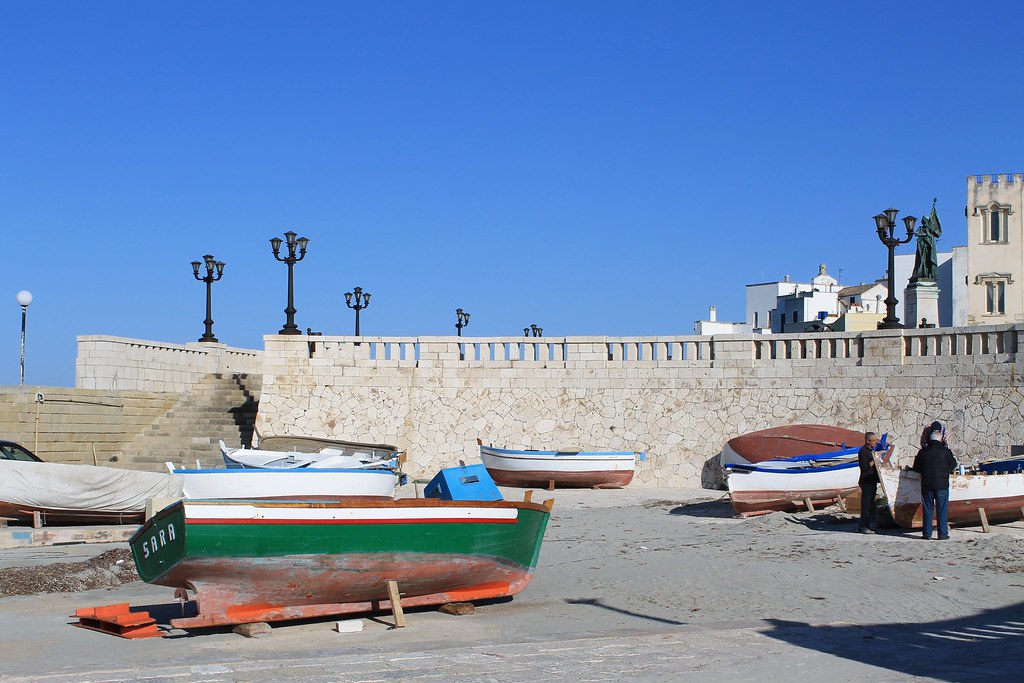
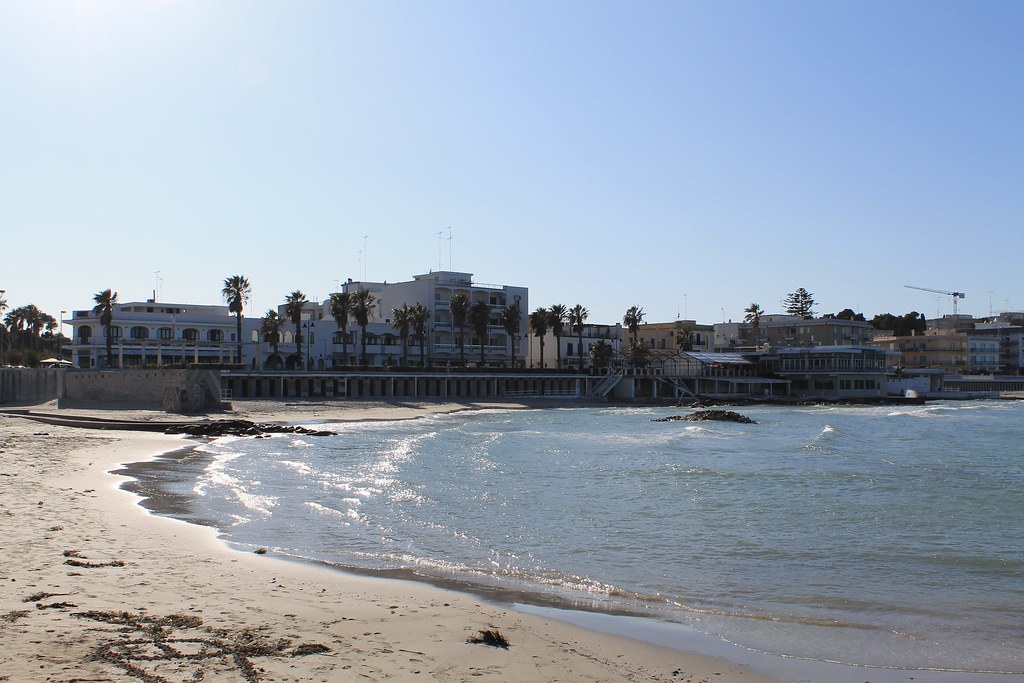
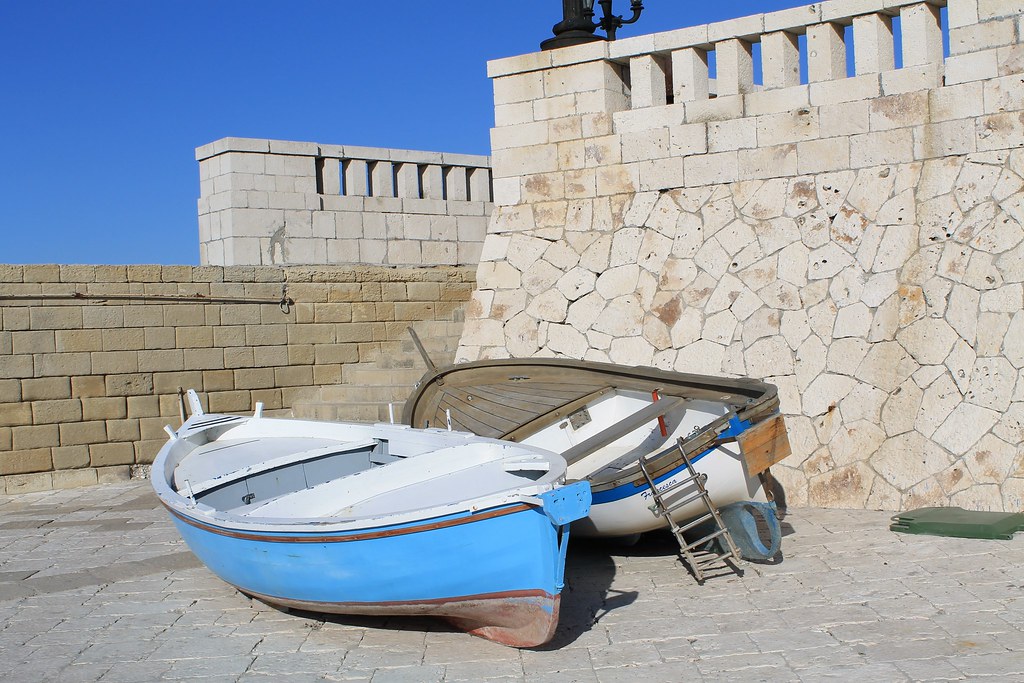
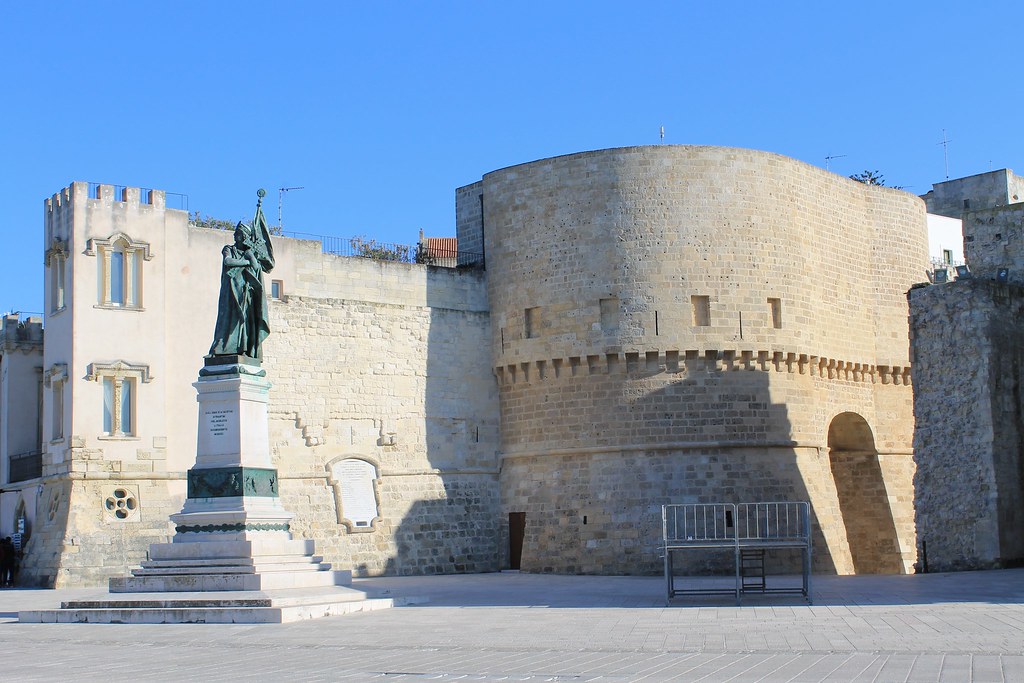
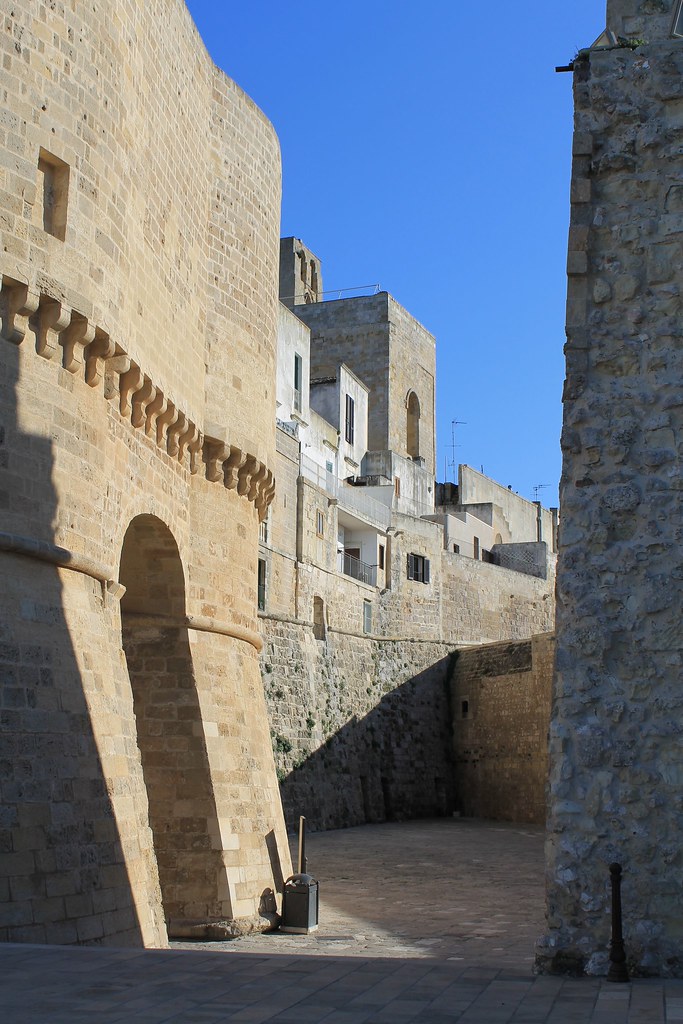
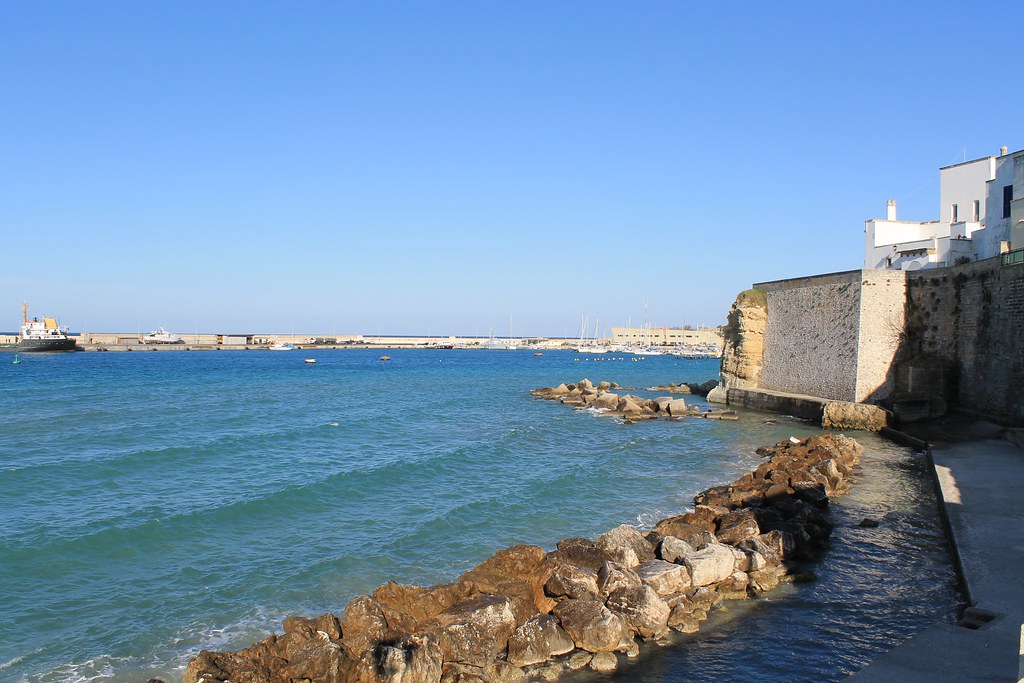
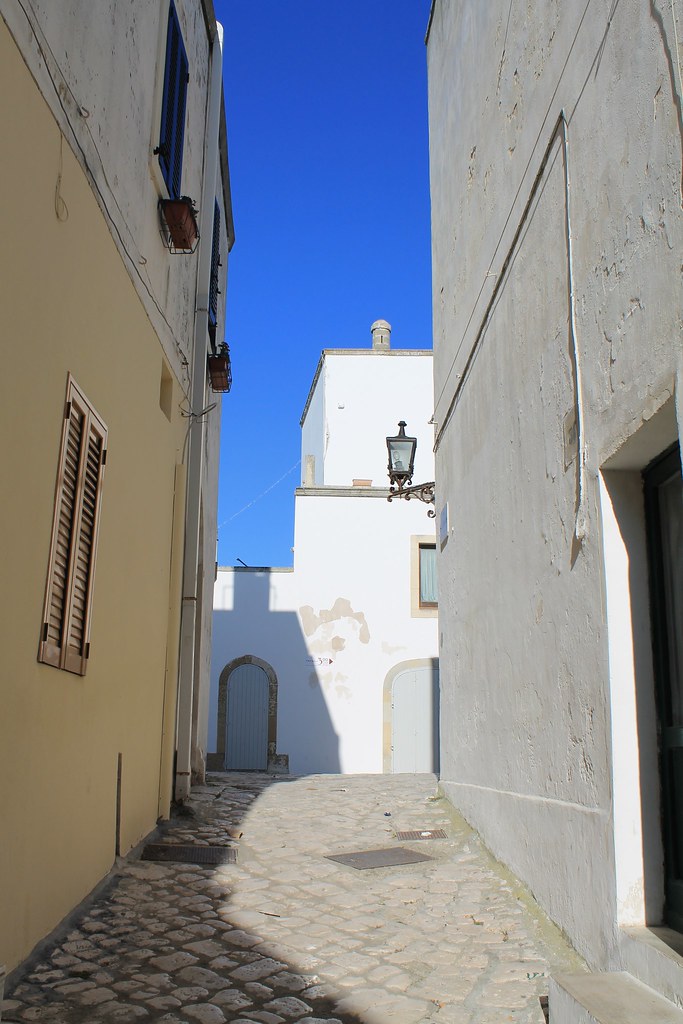
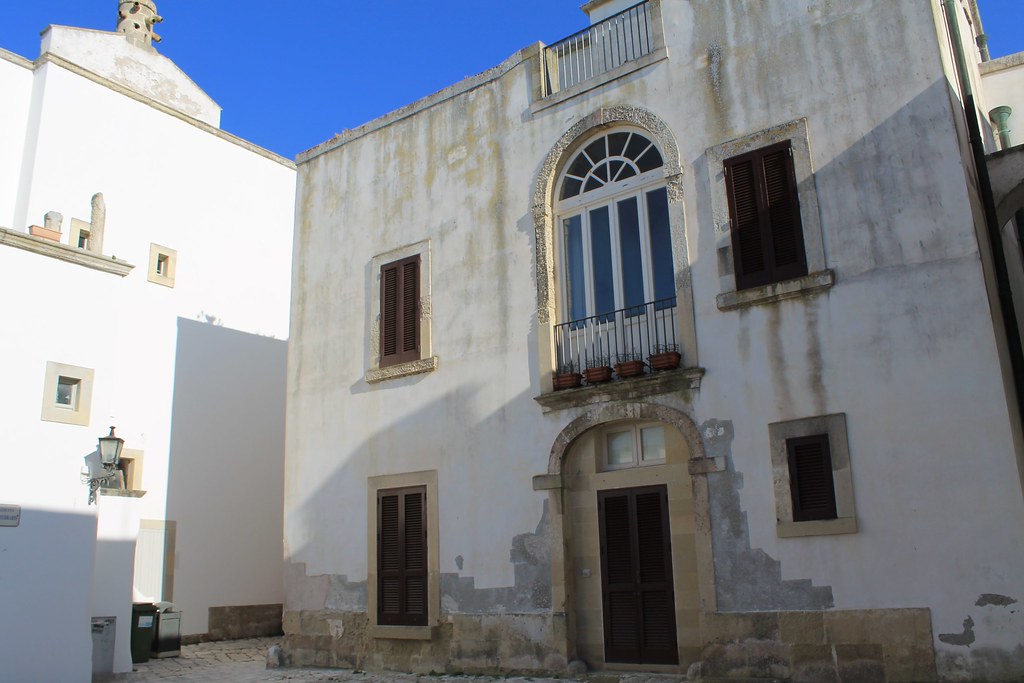
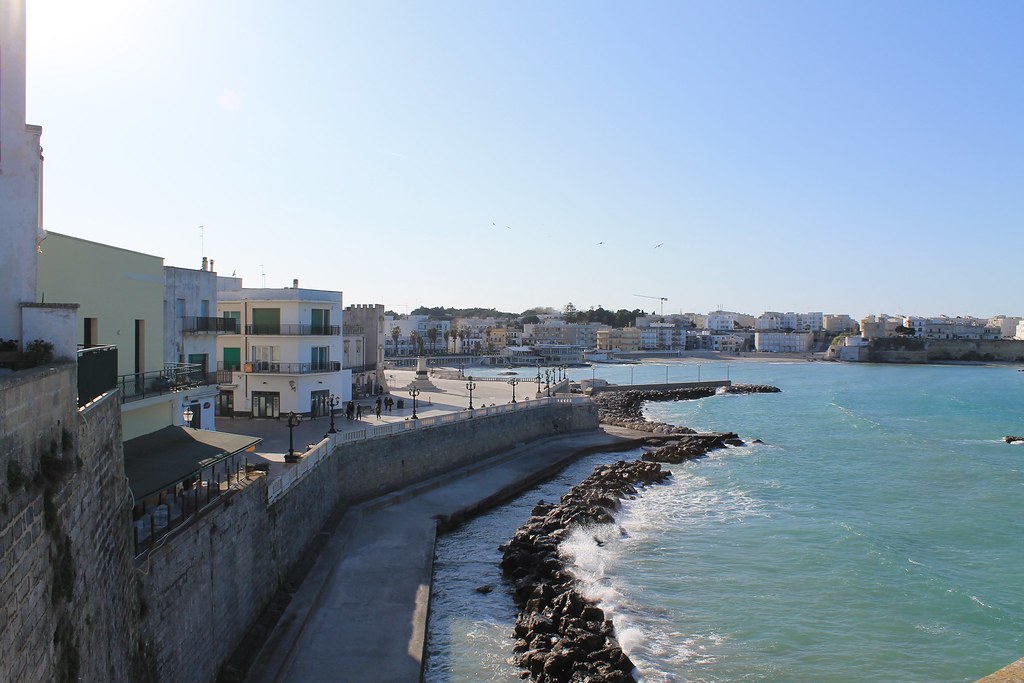
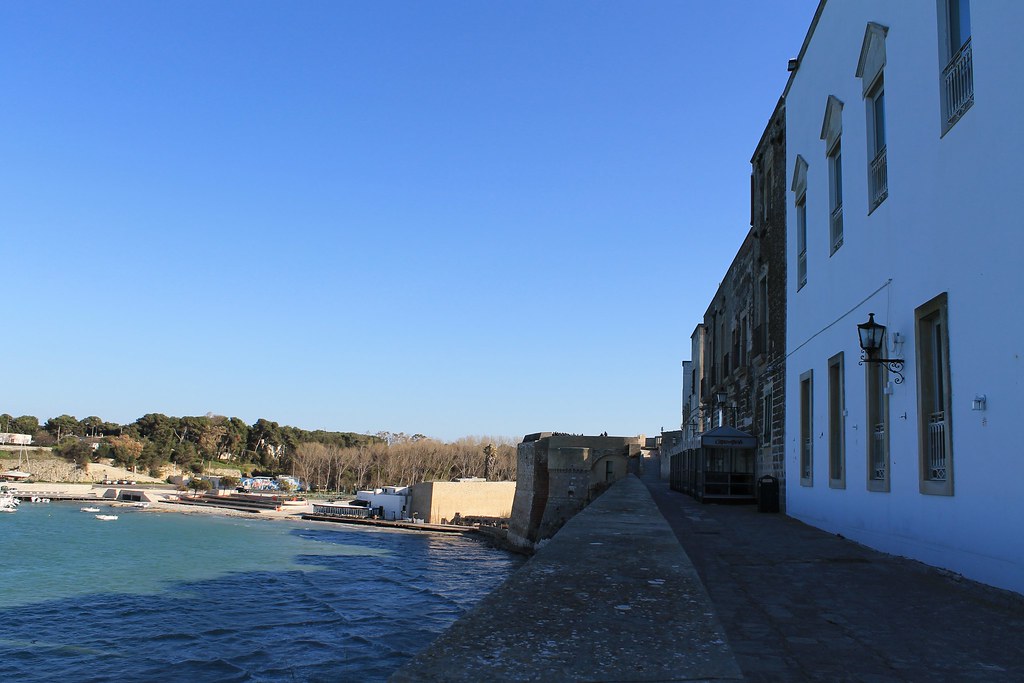
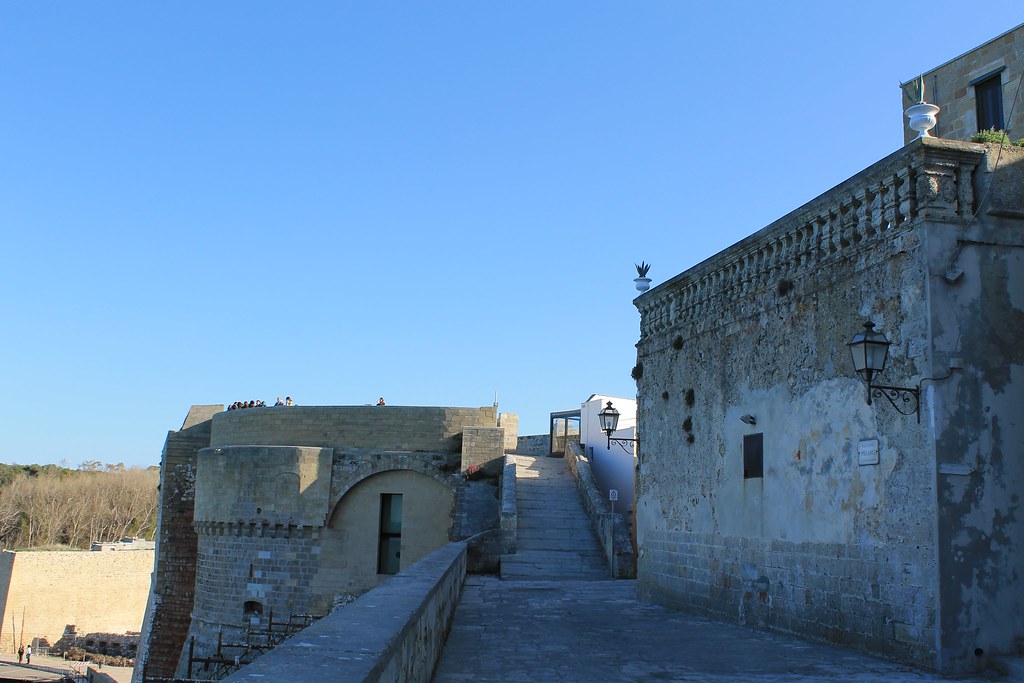
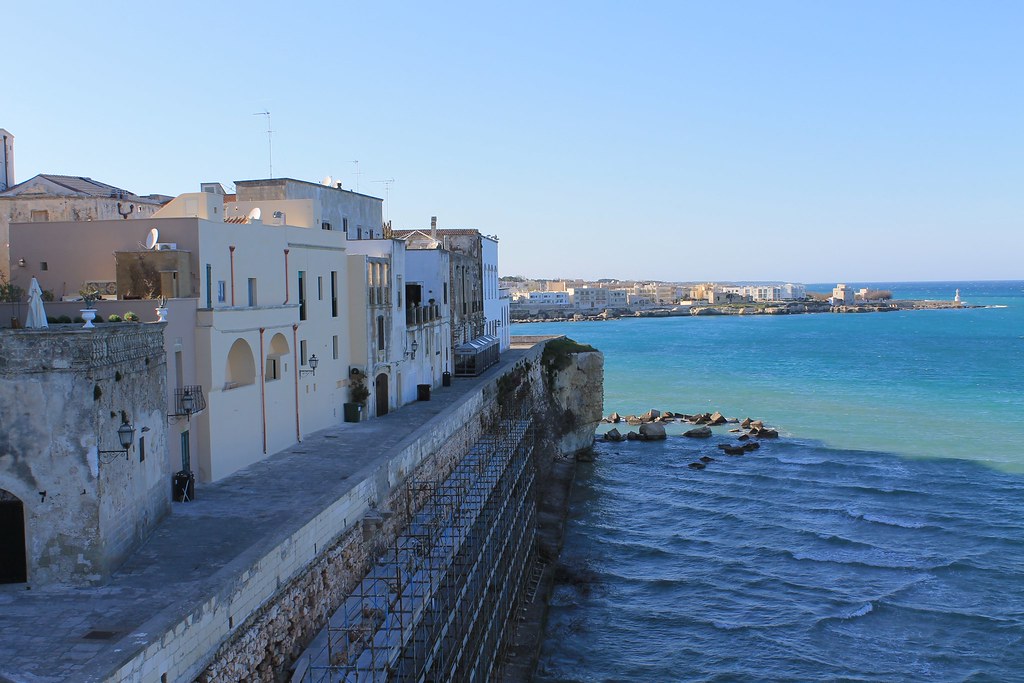
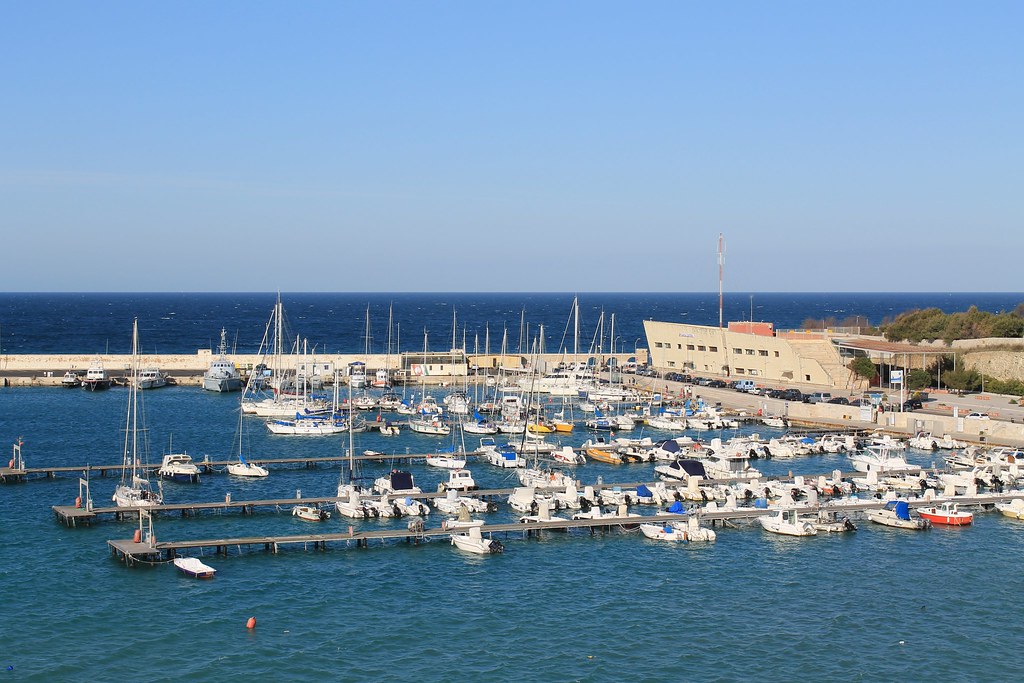
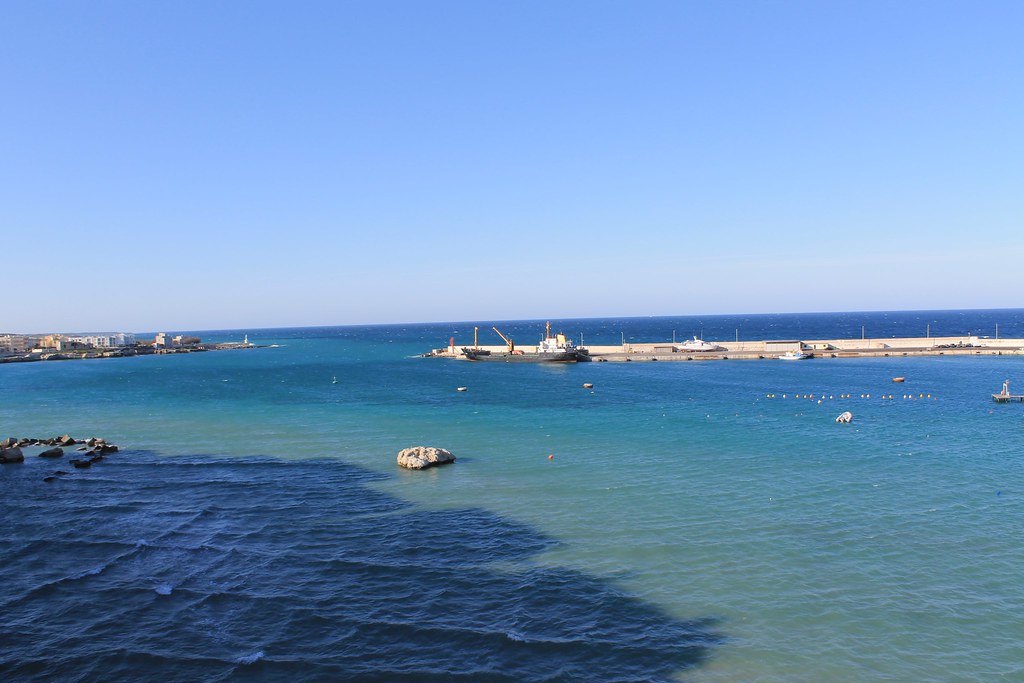
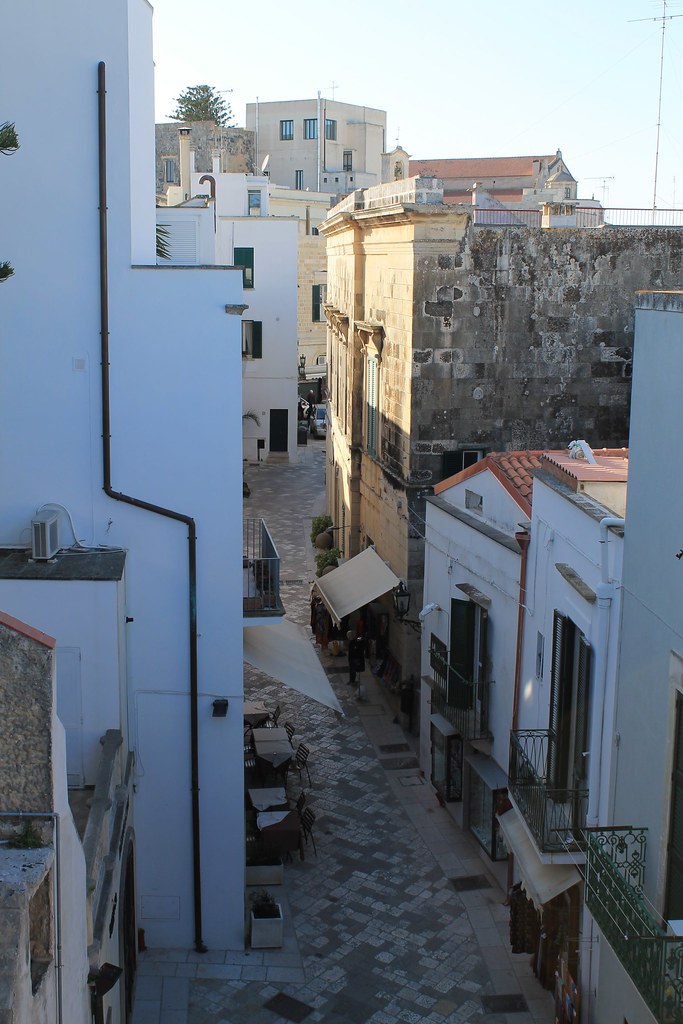
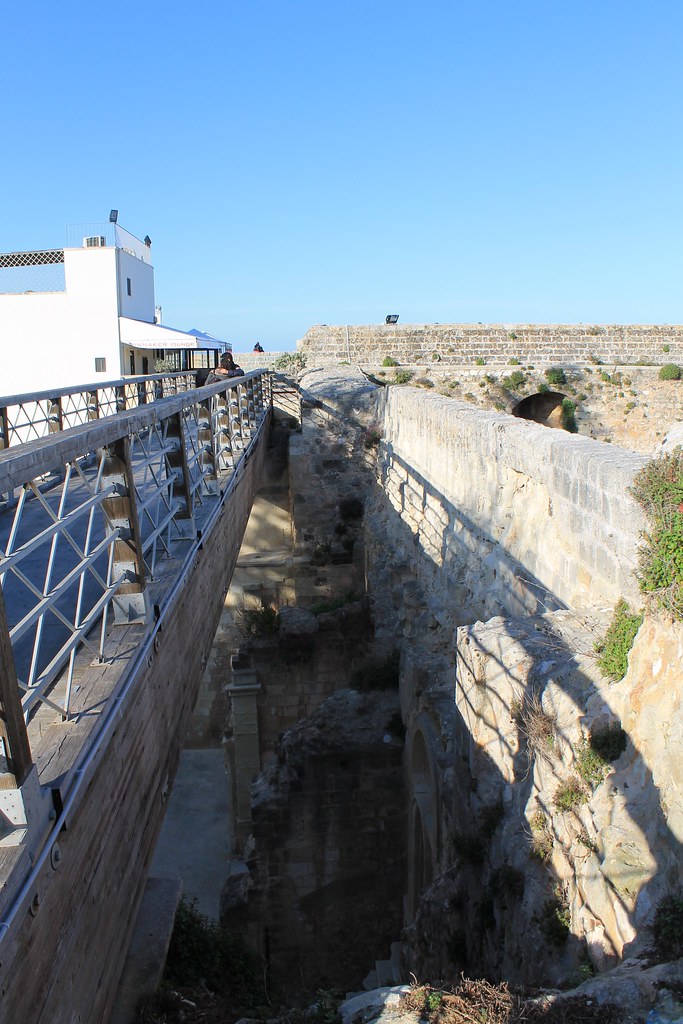
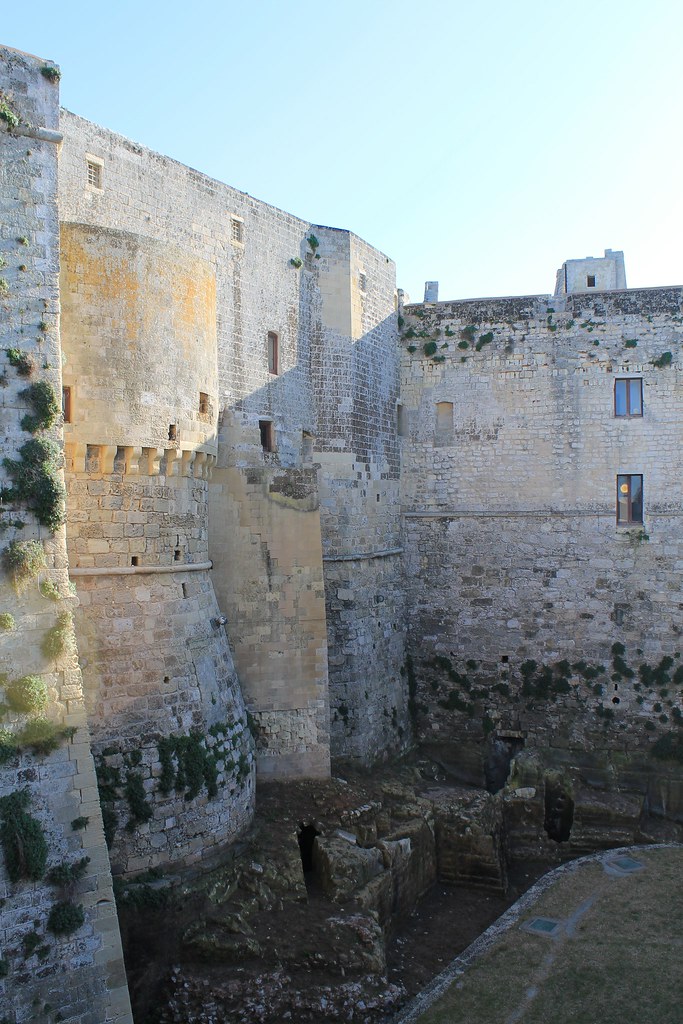
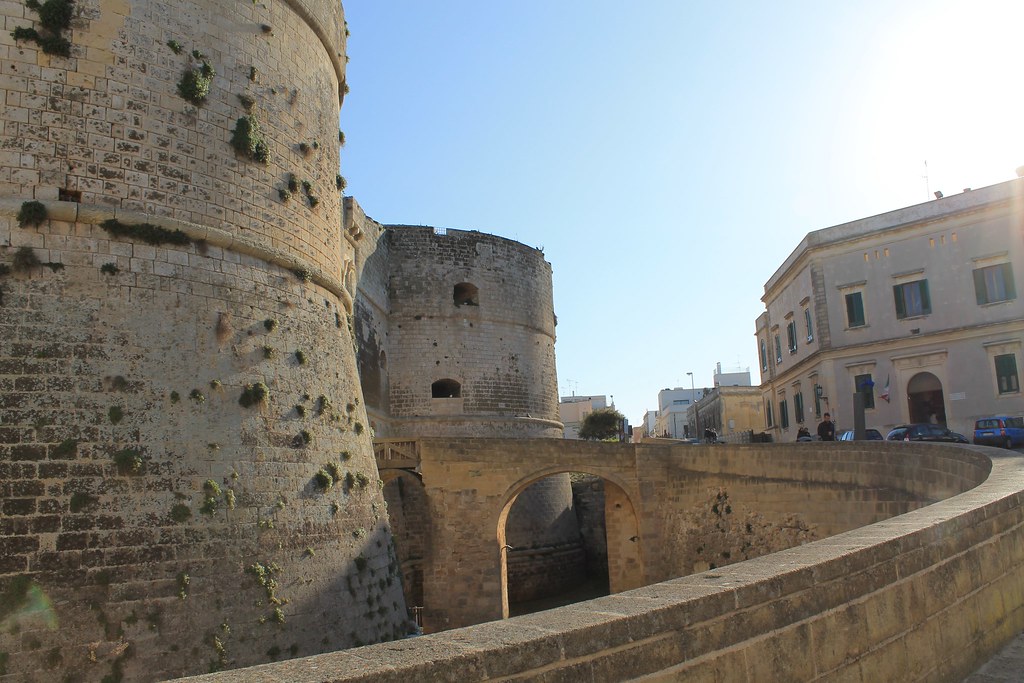
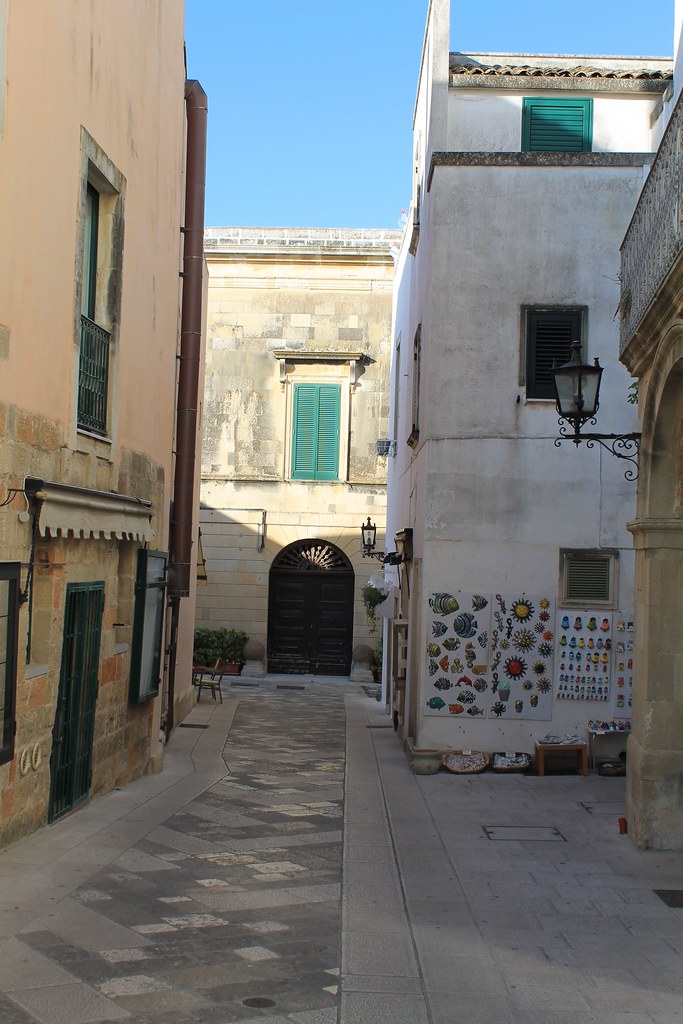
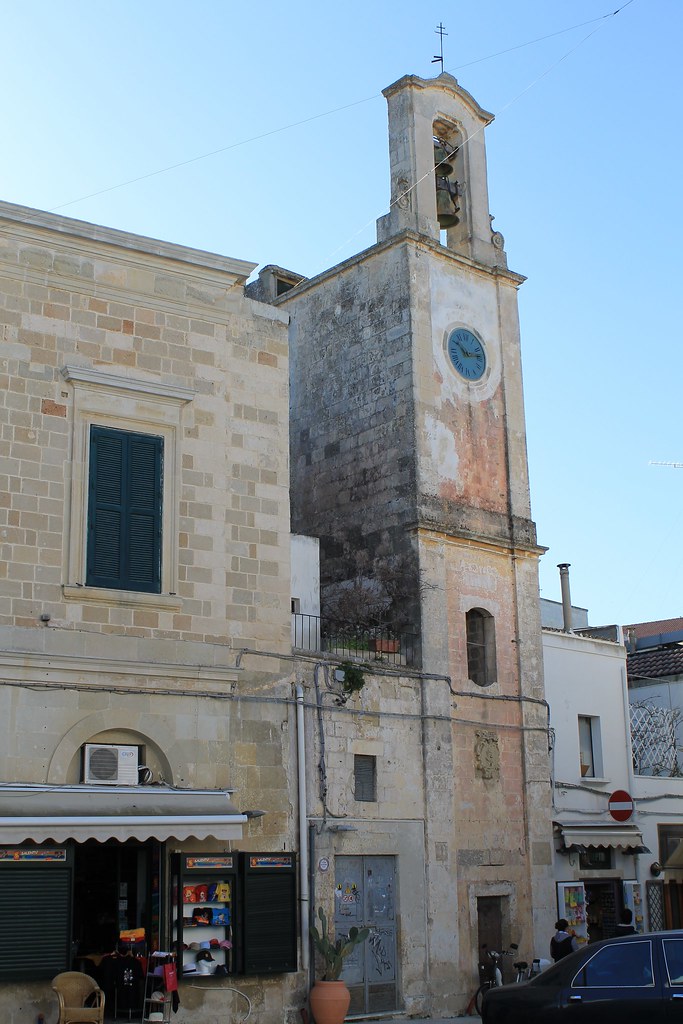
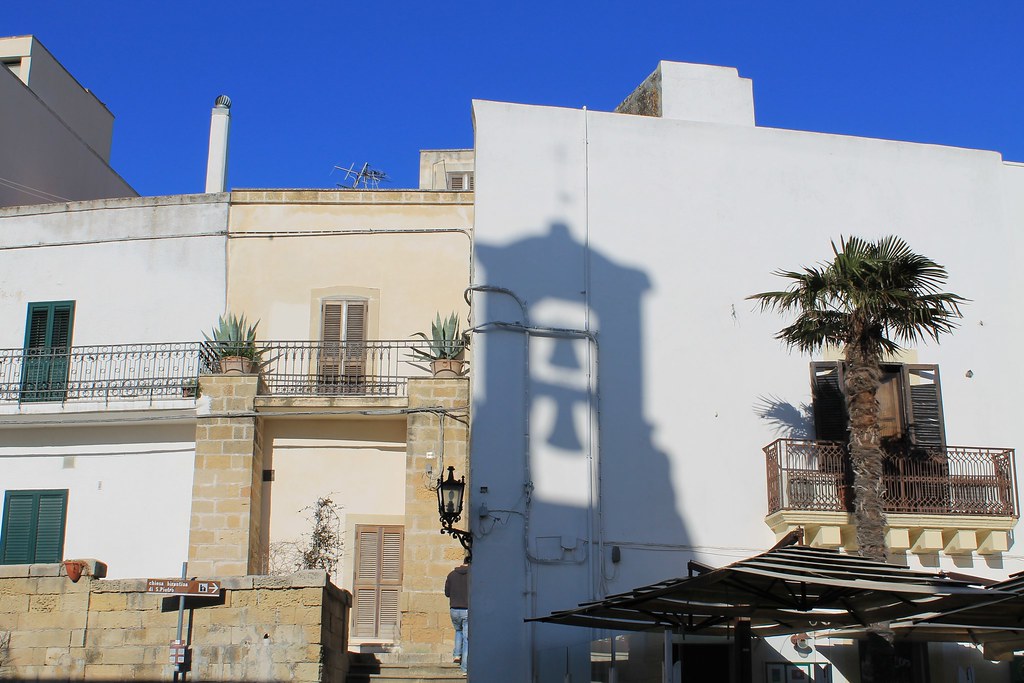
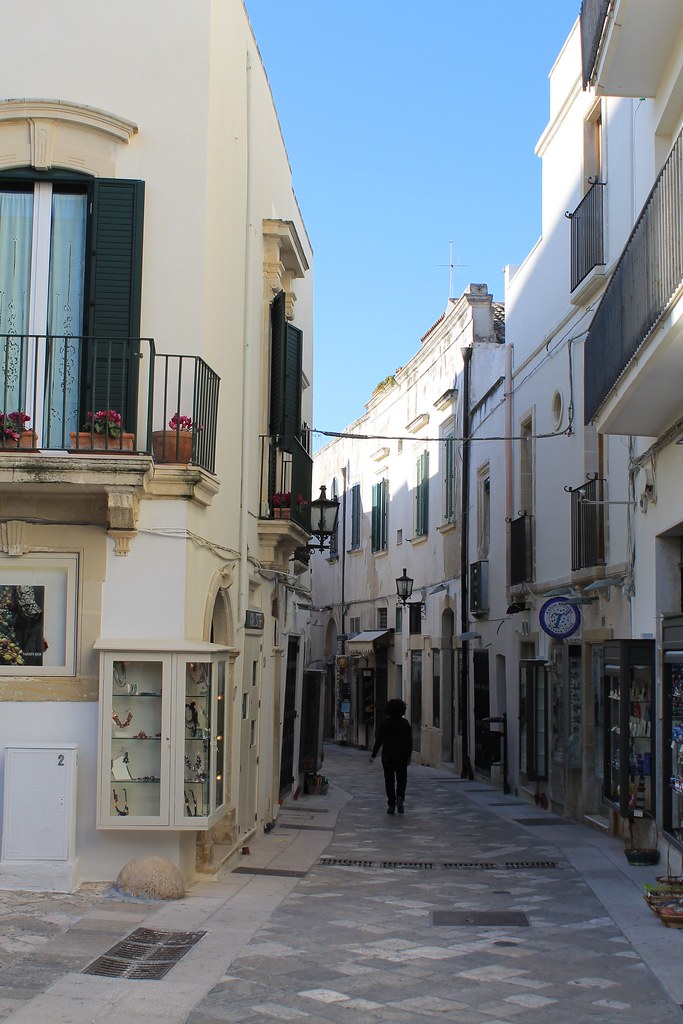
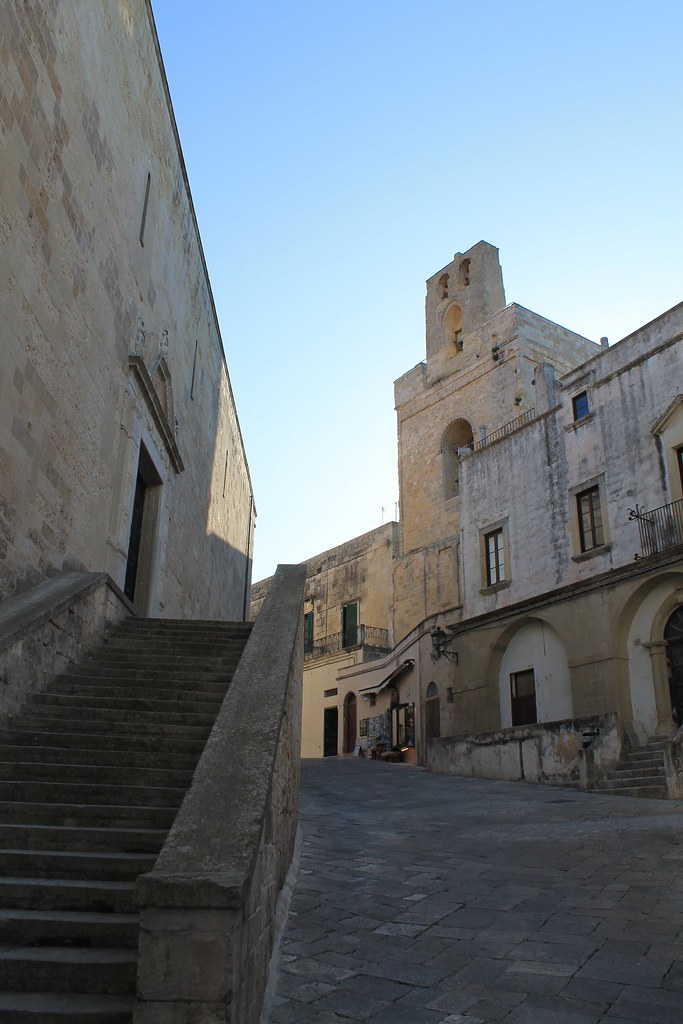
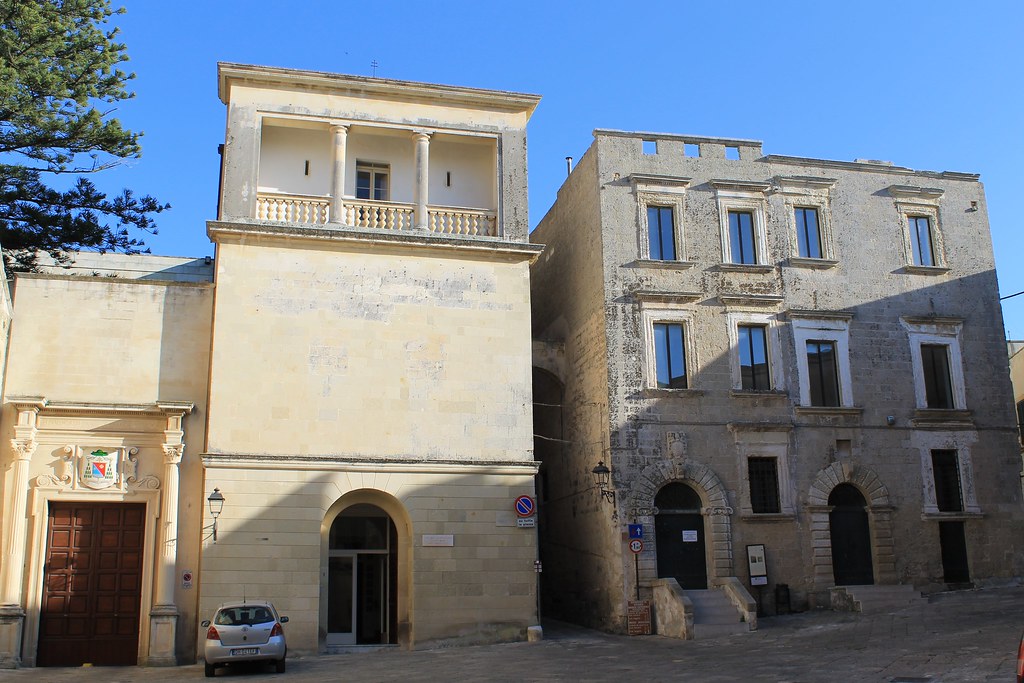
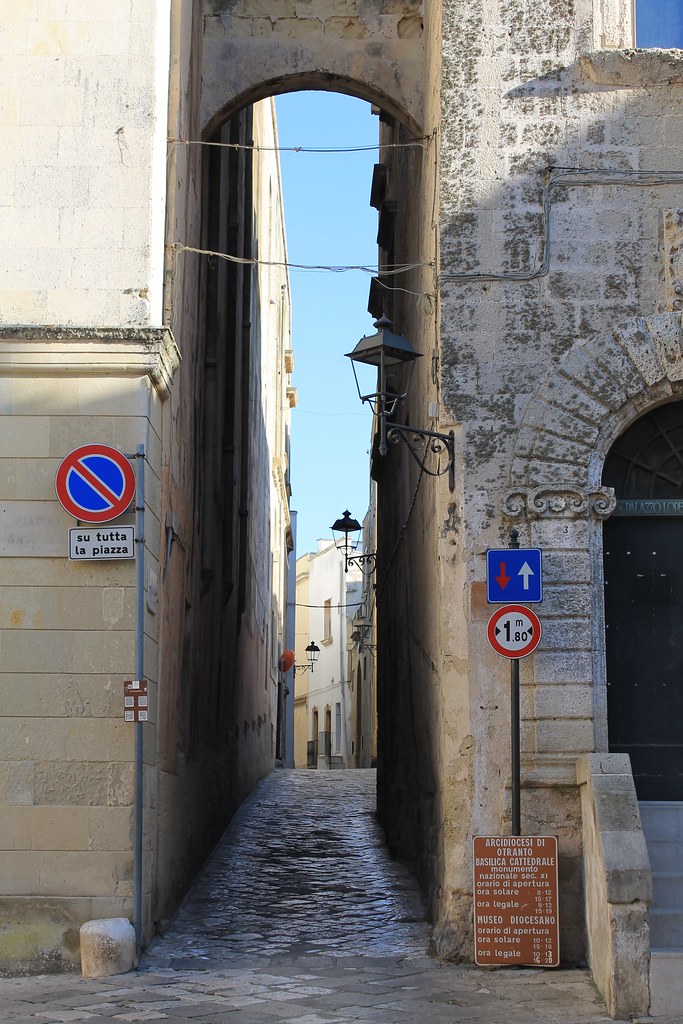
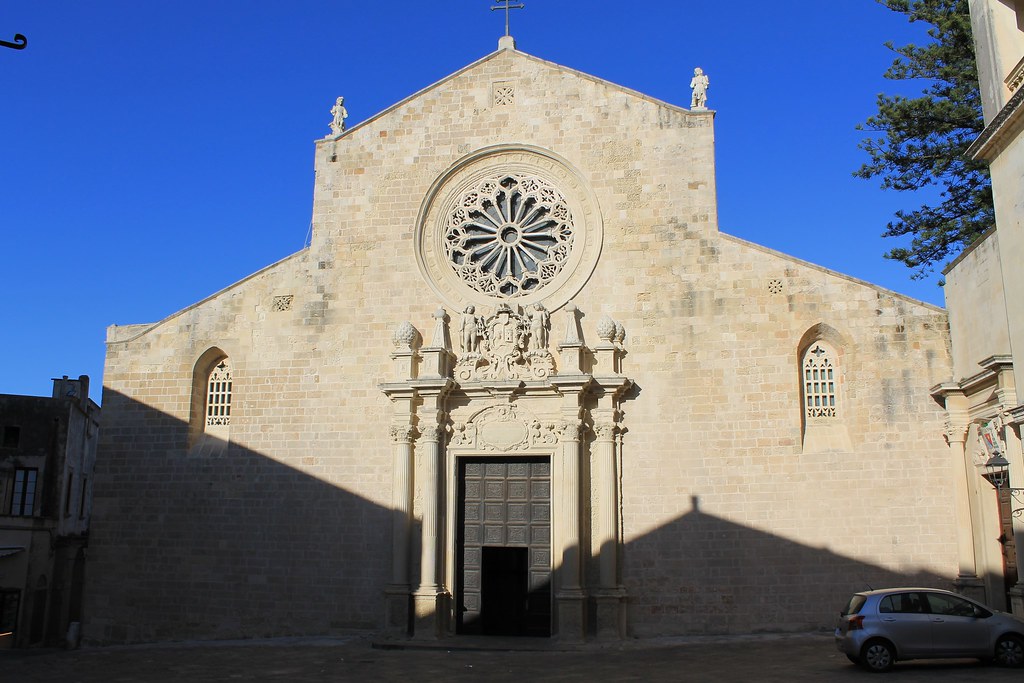
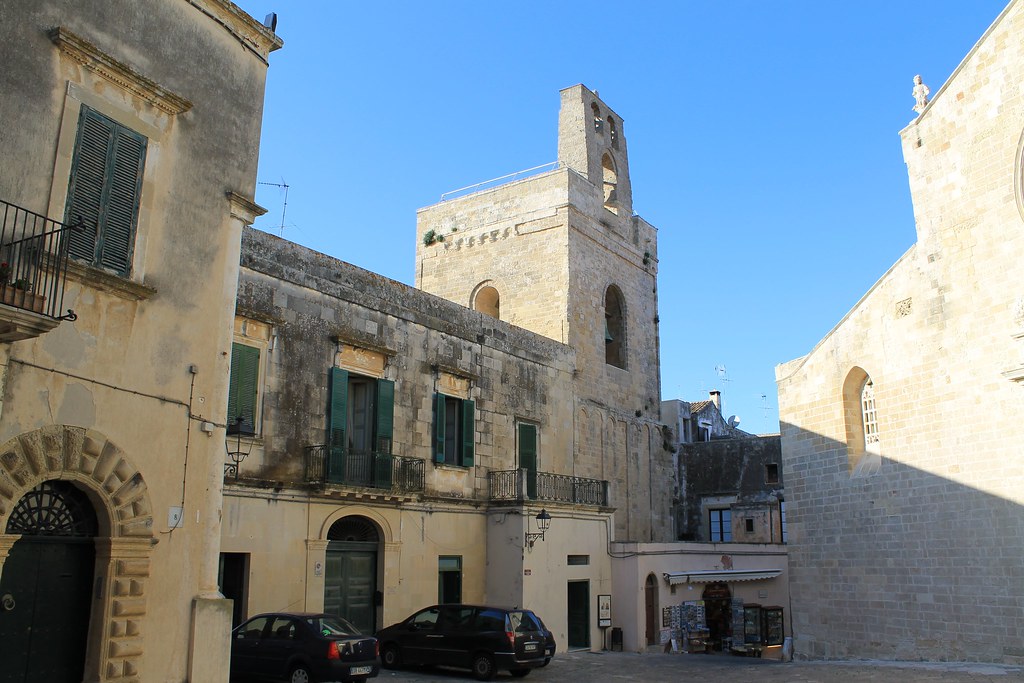
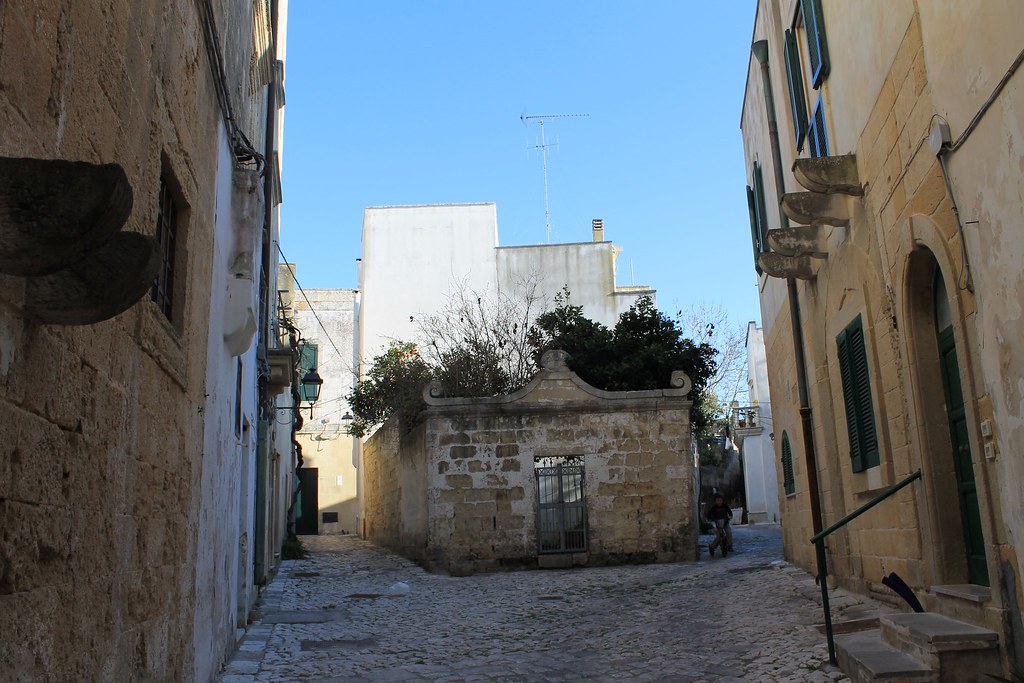
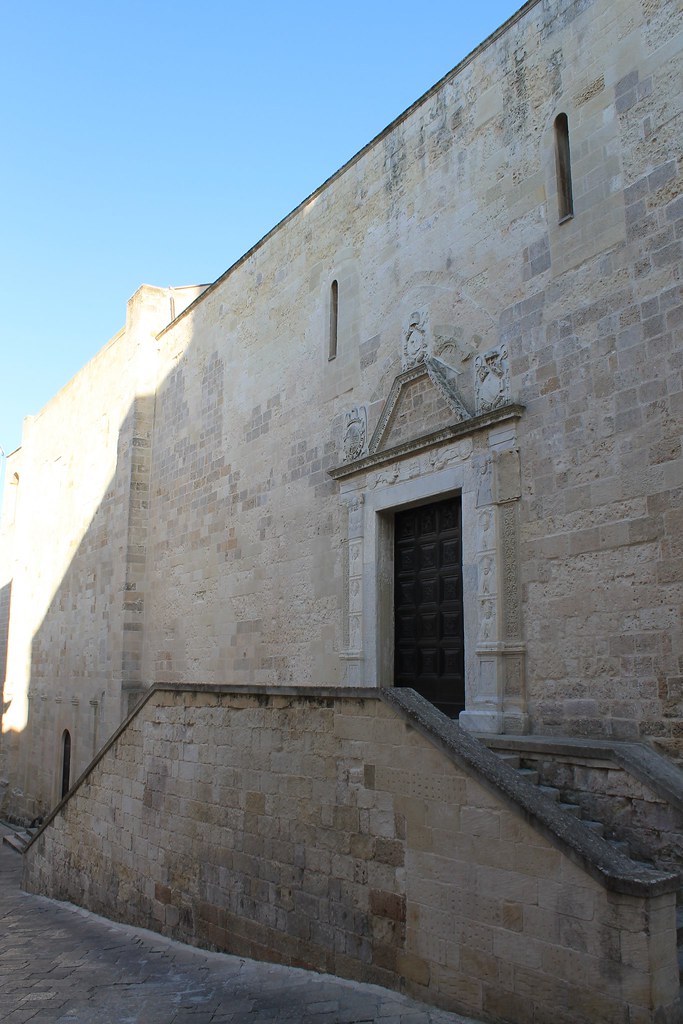
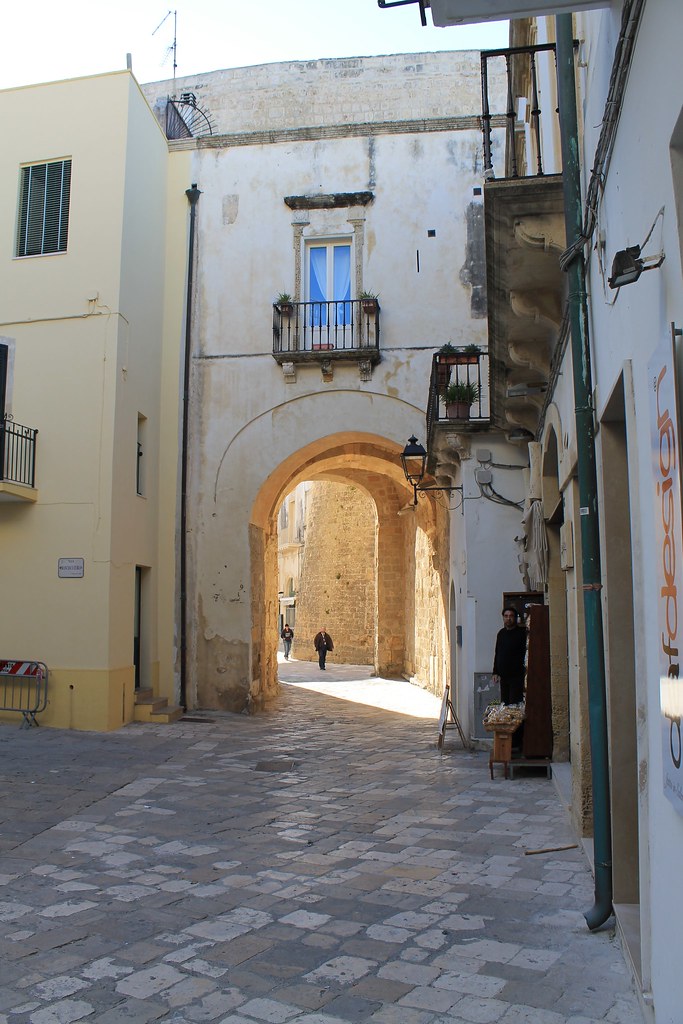
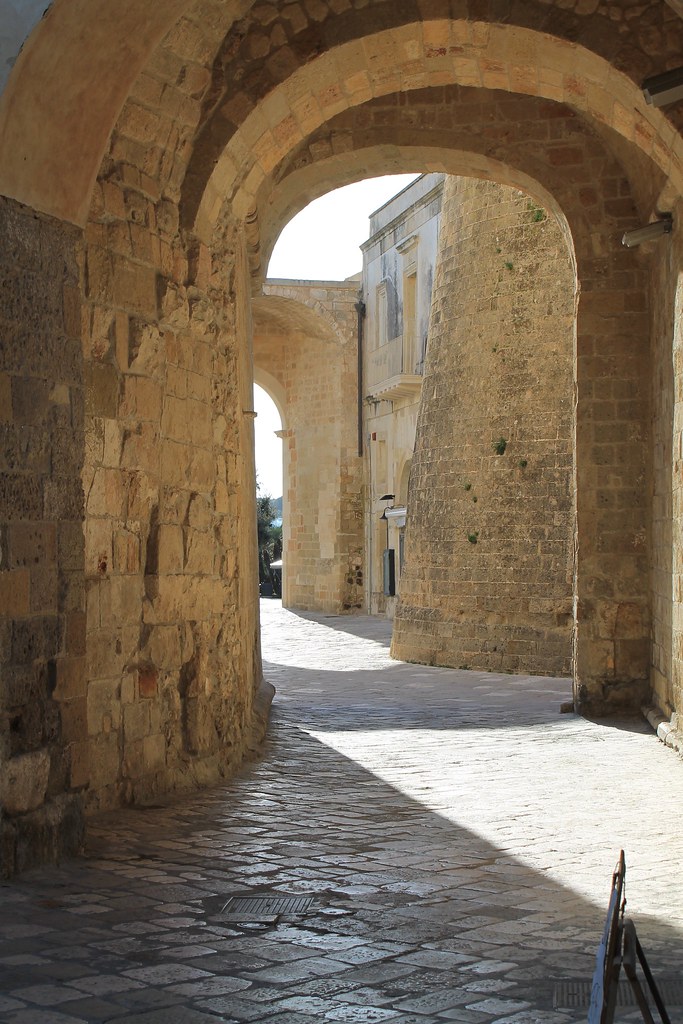
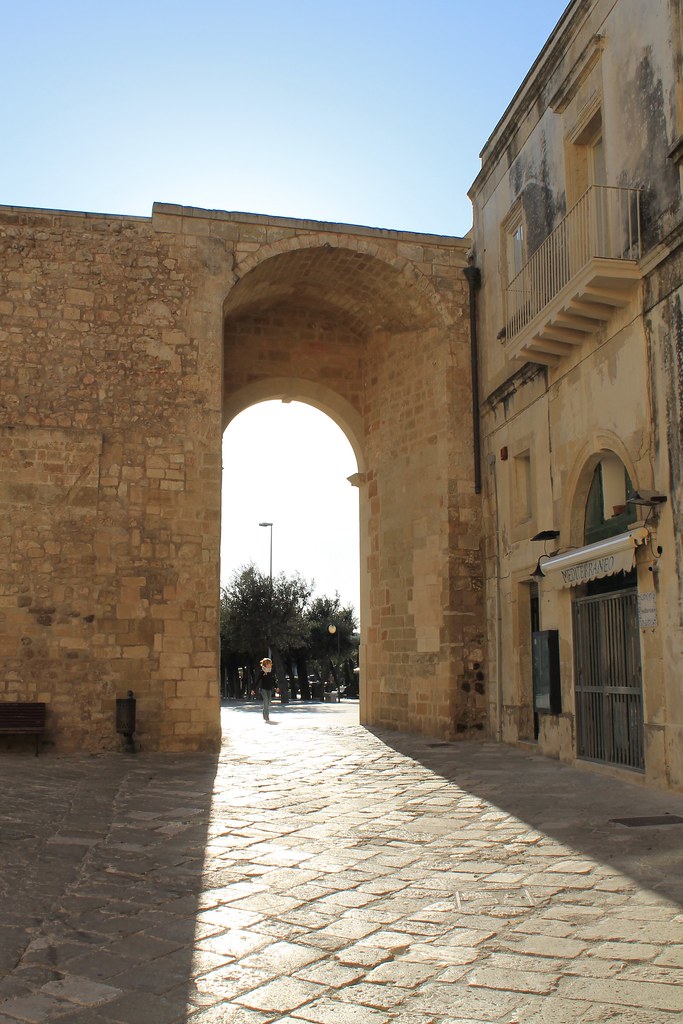
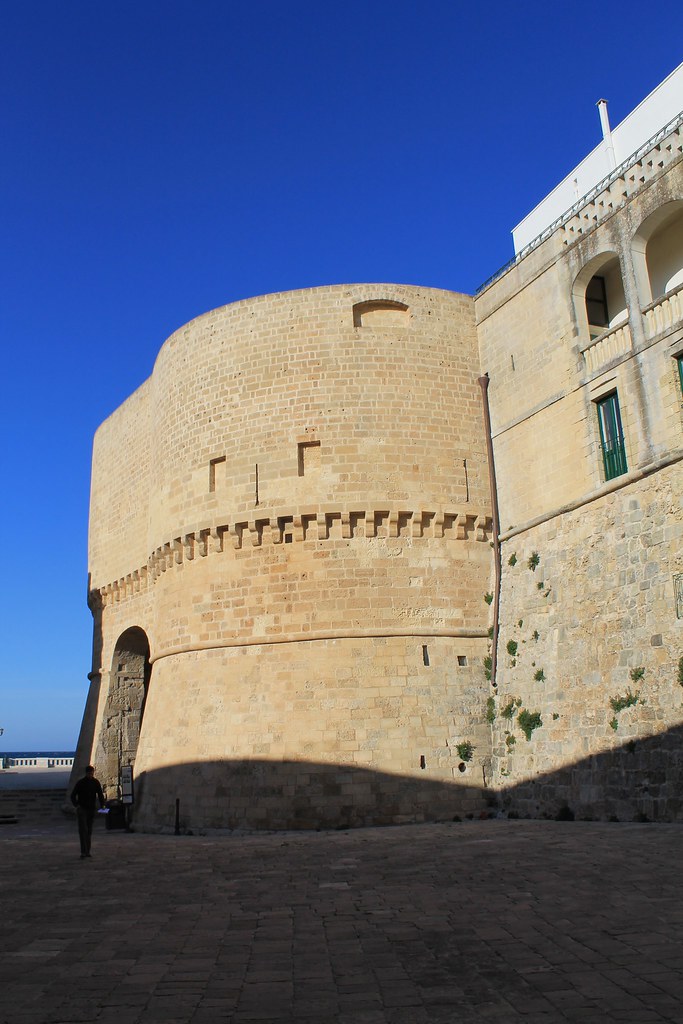
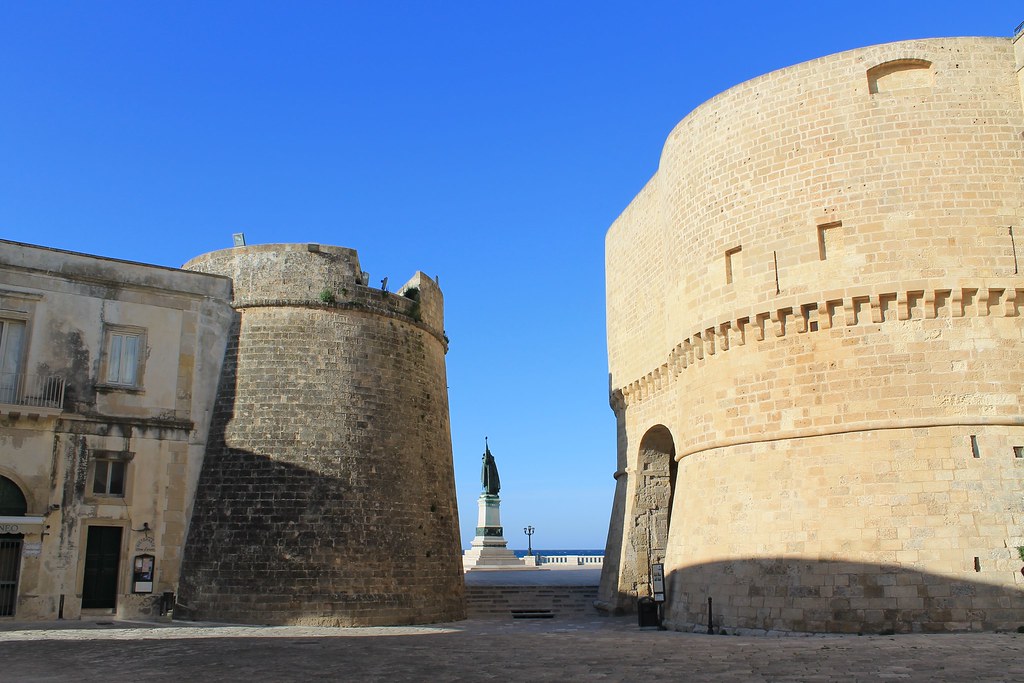
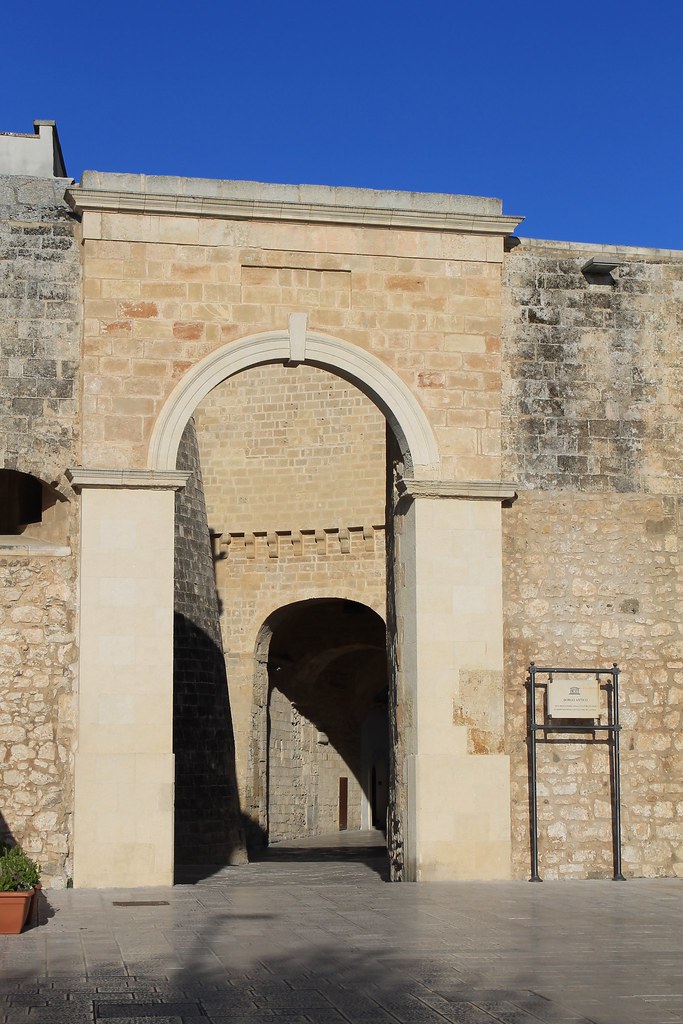
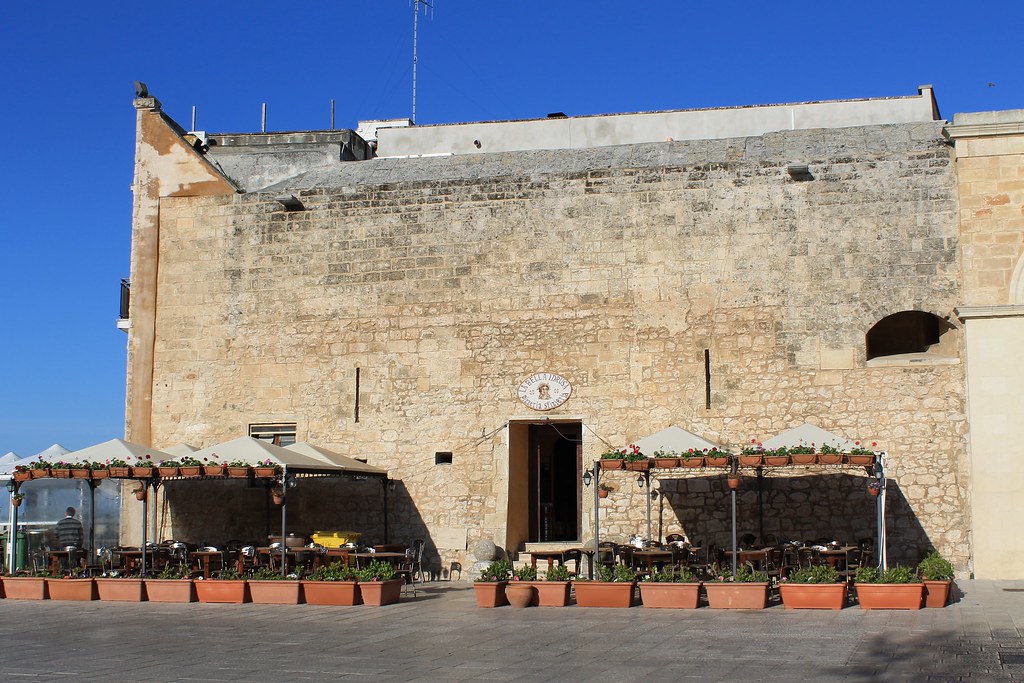
In Roman times it was a city in the Provincia Calabria. As it is the nearest port to the eastern coast of the Adriatic Sea, it was perhaps more important than Brundisium (present Brindisi), under the Roman emperors as a point of embarkation for the East, as the distance to Apollonia was less than from Brundisium.
In the 8th century, it was for some time in the possession of duke Arechis II of Benevento. It remained in the hands of the Byzantine emperors until it was among the last cities of Apulia to surrender to the Norman Robert Guiscard in 1068, and then became part of the Principality of Taranto. In the Middle Ages the Jews had a school there.
In 1480, Mehmet the Conqueror sent an Ottoman Turkish fleet to invade Rome under the command of Gedik Ahmet Paşa. The army reached the shore on 28 July 1480 and the city was captured in two weeks on 11 August 1480. The Pope in panic, called for a crusade to be built up by Ferdinand I of Naples, among them notably troops of Hungarian king Matthias Corvinus. Turks controlled the city for 13 months. Mehmet II died en route to capture the rest of Italy [1]. His successor II. Bayezit ordered Gedik Ahmet Paşa to be hung and the Turks retreated at the end on 11 September 1481.
In 1537, the famous Turkish corsair and Ottoman admiral Barbarossa captured Otranto and the Fortress of Castro, but the Turks were eventually repulsed from the city and the rest of Puglia.
In 1804, the city was obliged to harbour a French garrison that was established there to watch the movements of the English fleet. Under the French name of Otranto it was created a duché grand-fief de l'Empire in the Napoleonic kingdom of Naples for Joseph Fouché, Napoleon's minister of Police (1809), the grandfather of Margareta Fouché. The family used the title of duc d'Otrante after Joseph Fouché's death.



































 In Roman times it was a city in the Provincia Calabria. As it is the nearest port to the eastern coast of the Adriatic Sea, it was perhaps more important than Brundisium (present Brindisi), under the Roman emperors as a point of embarkation for the East, as the distance to Apollonia was less than from Brundisium.
In the 8th century, it was for some time in the possession of duke Arechis II of Benevento. It remained in the hands of the Byzantine emperors until it was among the last cities of Apulia to surrender to the Norman Robert Guiscard in 1068, and then became part of the Principality of Taranto. In the Middle Ages the Jews had a school there.
In 1480, Mehmet the Conqueror sent an Ottoman Turkish fleet to invade Rome under the command of Gedik Ahmet Paşa. The army reached the shore on 28 July 1480 and the city was captured in two weeks on 11 August 1480. The Pope in panic, called for a crusade to be built up by Ferdinand I of Naples, among them notably troops of Hungarian king Matthias Corvinus. Turks controlled the city for 13 months. Mehmet II died en route to capture the rest of Italy [1]. His successor II. Bayezit ordered Gedik Ahmet Paşa to be hung and the Turks retreated at the end on 11 September 1481.
In 1537, the famous Turkish corsair and Ottoman admiral Barbarossa captured Otranto and the Fortress of Castro, but the Turks were eventually repulsed from the city and the rest of Puglia.
In 1804, the city was obliged to harbour a French garrison that was established there to watch the movements of the English fleet. Under the French name of Otranto it was created a duché grand-fief de l'Empire in the Napoleonic kingdom of Naples for Joseph Fouché, Napoleon's minister of Police (1809), the grandfather of Margareta Fouché. The family used the title of duc d'Otrante after Joseph Fouché's death.
In Roman times it was a city in the Provincia Calabria. As it is the nearest port to the eastern coast of the Adriatic Sea, it was perhaps more important than Brundisium (present Brindisi), under the Roman emperors as a point of embarkation for the East, as the distance to Apollonia was less than from Brundisium.
In the 8th century, it was for some time in the possession of duke Arechis II of Benevento. It remained in the hands of the Byzantine emperors until it was among the last cities of Apulia to surrender to the Norman Robert Guiscard in 1068, and then became part of the Principality of Taranto. In the Middle Ages the Jews had a school there.
In 1480, Mehmet the Conqueror sent an Ottoman Turkish fleet to invade Rome under the command of Gedik Ahmet Paşa. The army reached the shore on 28 July 1480 and the city was captured in two weeks on 11 August 1480. The Pope in panic, called for a crusade to be built up by Ferdinand I of Naples, among them notably troops of Hungarian king Matthias Corvinus. Turks controlled the city for 13 months. Mehmet II died en route to capture the rest of Italy [1]. His successor II. Bayezit ordered Gedik Ahmet Paşa to be hung and the Turks retreated at the end on 11 September 1481.
In 1537, the famous Turkish corsair and Ottoman admiral Barbarossa captured Otranto and the Fortress of Castro, but the Turks were eventually repulsed from the city and the rest of Puglia.
In 1804, the city was obliged to harbour a French garrison that was established there to watch the movements of the English fleet. Under the French name of Otranto it was created a duché grand-fief de l'Empire in the Napoleonic kingdom of Naples for Joseph Fouché, Napoleon's minister of Police (1809), the grandfather of Margareta Fouché. The family used the title of duc d'Otrante after Joseph Fouché's death.
Comments
Post a Comment